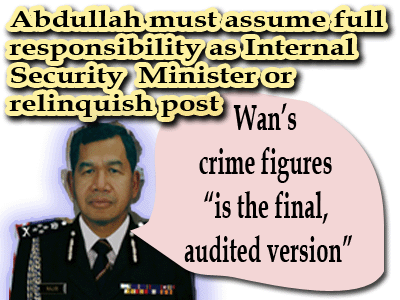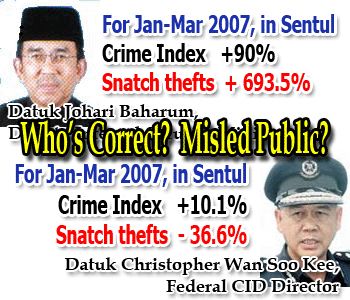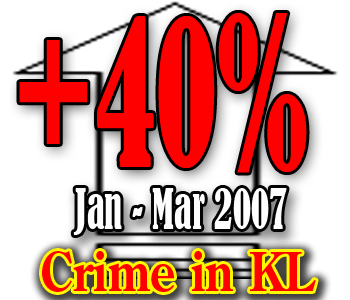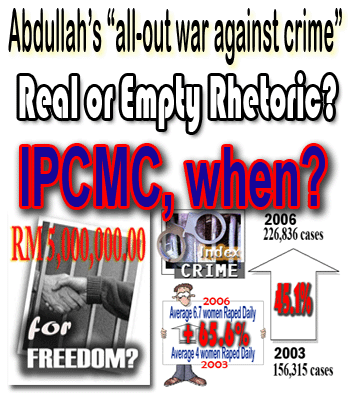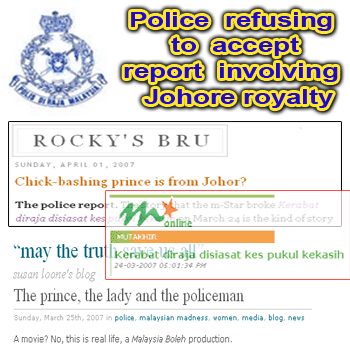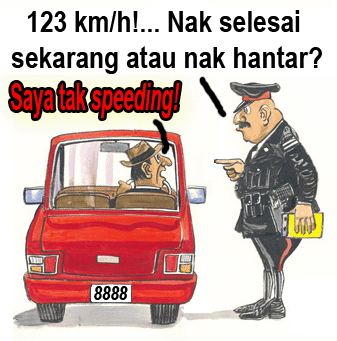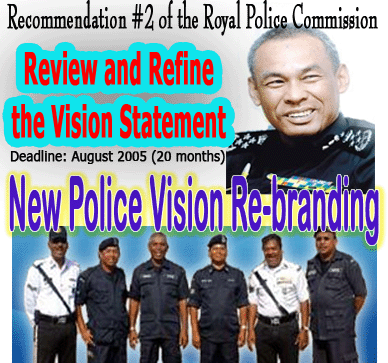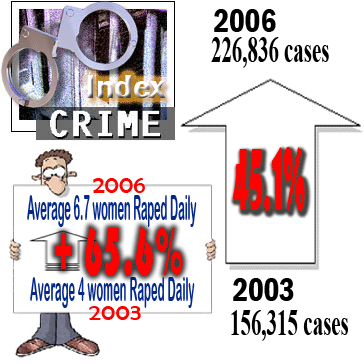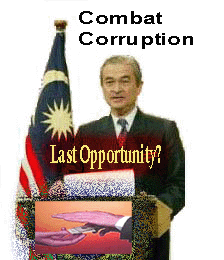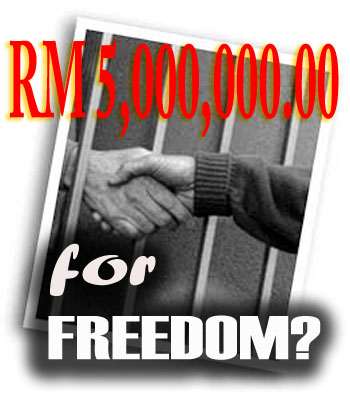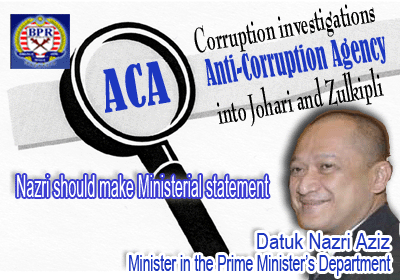
I fully support the call by Deputy Internal Security Minister Datuk Johari Baharum for public announcement of outcome of Anti-Corruption Agency (ACA) investigations on RM5.5 million graft allegations against him in connection with the Emergency Ordinance (EO) “freedom for sale” scandal.
The ACA acting director-general Datuk Ahmad Said Hamdan had said that ACA had completed its investigations on the graft allegations against Johari shortly after the deputy minister was questioned by ACA officials on March 19 and that the investigation papers are now in the hands of the prosecution division.
Johari said he hoped that the Attorney-General’s Chambers would announce its decision quickly to clear his name.
If what Ahmad Said is true, then the Attorney-General Tan Sri Gani Patail should explain why the Attorney-General’s Chambers is taking more than a month to decide on the ACA investigations papers into Johari in connection with the RM5.5 million “EO freedom for sale” allegations.
The outcome of police investigations into the serious corruption allegations made against the then ACA director-general Datuk Seri Zulkipli Mat Noor by former Sabah ACA director and whistleblower Mohamad Ramli Abdul Manan in June last year should also be made public. Continue reading “Corruption investigations into Johari and Zulkipli – Nazri should make Ministerial statement”

